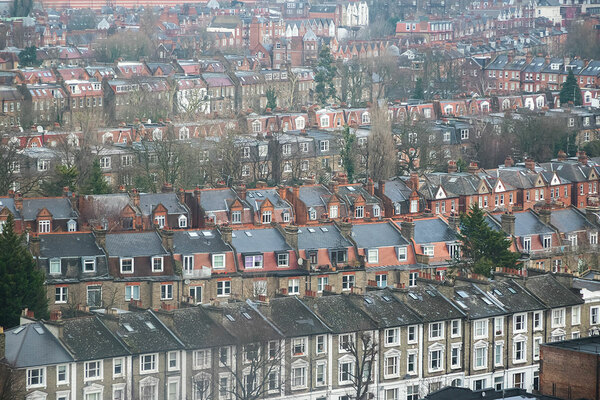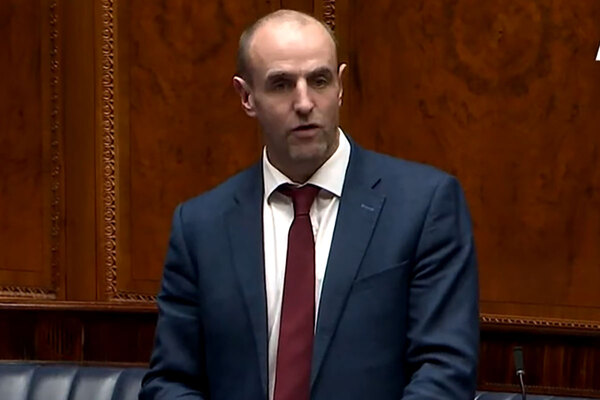You are viewing 1 of your 1 free articles
Affordable housing is a health issue
The pandemic has exposed some of the health consequences of our housing crisis. Sheldon Wood explains how government can start to level the playing field
The housing crisis in the UK has been years in the making. As a result, many of the most vulnerable people in our society do not have access to safe and affordable housing during normal times, let alone during this unprecedented COVID-19 crisis.
Housing is a health issue, and we cannot guarantee the well-being of vulnerable members of our communities unless we can guarantee a roof over their heads. COVID-19 has increased the uncertainty surrounding housing affordability and availability throughout the UK. Special attention must be paid to how we can support those who are struggling to find affordable housing amid the pandemic.
The Chartered Institute of Public Finance and Accounting (CIPFA) recently unveiled a suite of new housing analytics tools, Housing 360, which paint a bleak picture of the housing crisis. Our analysis has shown that it would take 17 years on average for local authorities to provide council housing to all who are currently waiting for it. In the North West of England, the numbers are even higher, with those waiting for council housing expecting to wait 39 years on average.
Additional problems in the private rented sector in recent years have been exacerbated by reduced affordability as a result of reductions in the value of the Local Housing Allowance (LHA). Prior to 2010, this was fixed at the 30th percentile of local rental markets. But since then, there have been a series of cuts to LHA rates by removing the link with the 30th percentile and, instead, uprating rates alongside general benefits uprating, including the four-year benefits freeze introduced in 2016.
This has resulted in the removal of the link between LHA rates and local markets, meaning LHA rates have failed to remain in line with rent inflation. As a result, by the end of 2019 – on average across England – fewer than 10% of properties were available at rent levels below the LHA rate. In some areas this dropped to fewer than 5%.
“The true cost of homelessness in terms of health, well-being and social mobility is far greater than the costs identified in remedying the problem”
This led to benefits claimants struggling to pay rent and still have enough left to feed their families and pay the bills. In some areas, this has caused a spike in homelessness and an increased use of temporary accommodation, as councils struggle to manage demand because of a lack of affordable housing options.
A September 2019 report by Crisis highlighted that investing in LHA rates so they cover the 30th percentile, or the cheapest third of rents, would prevent more than 6,000 households from becoming homeless over three years and lift 32,000 households out of poverty, including 35,000 children.
The report estimates that £5.5bn of avoided cost could come from reducing the need for temporary accommodation and homelessness services, as well as reducing the need for services relating to homelessness, such as healthcare. Once the cost to the government (£3.3bn) of the investment over three years is taken into account, this still leaves the public purse £2.1bn better off.
An LGA report published in February 2020 also concluded that, in many parts of the country, there are few properties available at or below the LHA rate. The report showed that restoring LHA rates to their pre-2016 levels would result in:
- An average council needing to house 300 fewer people in temporary accommodation, or 101,000 nationally
- The average cost of using temporary accommodation for a council reducing by between £1.4m and £3m
- The average council seeing 650 more households able to cover the cost of their rent with their LHA payments, or 220,000 nationally
In response to the coronavirus outbreak, the government announced in the 2020 Budget that LHA rates would be returned to the 30th percentile for the financial year 2020/21. This will have an immediate impact on current levels of homelessness and will help thousands of people keep their homes.
This is a welcome and long overdue measure that will result in more private rented accommodation becoming affordable for Universal Credit and housing benefit claimants and increases in income for many already residing in the private rented sector.
However, the household benefit cap levels have not been increased. So, in some cases, this increase in benefit income will be capped, reducing affordability, especially for lone parents and families. Local authorities may need to consider whether to make discretionary housing payments in such situations to offset this. To avoid these issues, household benefit cap levels should be reviewed or abolished.
The true cost of homelessness in terms of health, well-being and social mobility is far greater than any of the costs identified in remedying the problem. But housing is not purely a financial transaction. Society benefits just as much as any individual from good housing provision.
Sheldon Wood, lead benefits advisor, CIPFA











